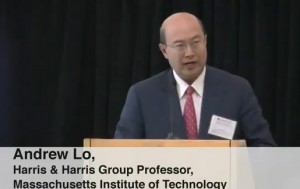Andrew Lo and the Lottery: Understanding Risk
-
-
slice.mit.edu
Filed Under
Recommended
On the eve of the recent Mega Millions drawing, the PBS NewsHour turned to Lo for insight on why so many people buy lottery tickets when their chances of winning are practically non-existent. According to the March 30 episode, households earning less than $13,000 a year spend 9 percent of their income on lottery tickets. So why are people buying tickets when their basic needs are barely being met. What gives?
"We have an extraordinarily refined imagination," Lo told PBS. "And, as a result, we can conjure up all sorts of really interesting scenarios of what we might do with the money if we won, and how happy we would be, and so on and so forth. The act of conjuring up these scenarios provides pleasure right now," he says. "In a way, what they are doing is buying the dream."
Winning may well be the end of those pleasures, Lo cautioned.
"When you win that kind of money, everybody knows that you have won that kind of money. So, all of a sudden, distant relatives, friends, people you never heard of are coming into your lives, asking for just a little bit of that money. And that creates an enormous amount of tension and ultimately unhappiness. So I think it's a mixed blessing.
Want to learn more about risk?
• Videos, podcasts, and papers are all on Lo's website.








